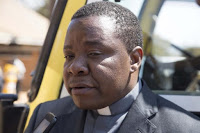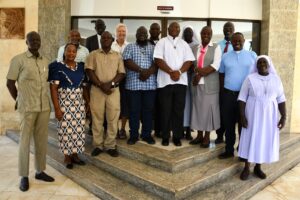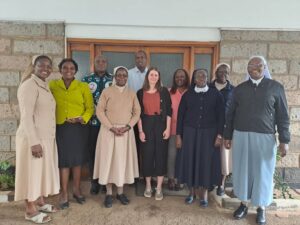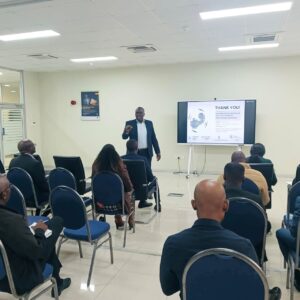MALAWI: CAFOD leaves us stronger, we have enough capacity to move on, ECM Secretary General says

Rev. Fr. Henry Saindi, PhD, Secretary General ECM
 The secretary General of the Episcopal Conference of Malawi (ECM) Rev. Fr. Henry Saindi, PhD, has expressed great confidence in their capacity to carry on with the programs that the Catholic Agency For Overseas Development CAFOD initiated in Malawi. CAFOD, which has been in Malawi for over 20 years is currently phasing out its programs in Malawi and other African countries where their sister organizations such as Trócaire are operating.
The secretary General of the Episcopal Conference of Malawi (ECM) Rev. Fr. Henry Saindi, PhD, has expressed great confidence in their capacity to carry on with the programs that the Catholic Agency For Overseas Development CAFOD initiated in Malawi. CAFOD, which has been in Malawi for over 20 years is currently phasing out its programs in Malawi and other African countries where their sister organizations such as Trócaire are operating.
“CAFOD is handing over the projects to other partners. They would like to narrow down the number of countries they support so that they are not seen to spread thinly,” Fr. Saindi told AMECEA Online News.
Among the programs CAFOD has been collaborating with Malawi includes Sustainable Livelihoods – Agriculture and Food Security; Economic Governance and Policy review and citizen participation; Home Based Care and HIV programs as well as Humanitarian programs.
Fr. Saindi said that the programs supported by CAFOD in Malawi have had tremendous impact in the communities throughout the country. “I recall the 2004/2005 hunger period in Malawi when CAFOD assisted ECM with funds to distribute food as well as planting materials. The humanitarian programs have enabled us to reduce the food gap and save lives of Malawians in times of dire need.”
The governance programs supported by CAFOD enabled the Bishops’ Conference to build capacity of ECM Secretariat staff as well as communities in order to engage in effective/evidence based advocacy. “This has resulted in holding duty bearers to account and provide relevant services required to communities,” Fr. Saindi explained adding that in sustainable livelihoods, CAFOD has built capacity of ECM in linking relief to development/resilience.
“We have always incorporated a component of resilience/recovery in any relief program. This has helped to build capacity of communities to be self-reliant.”
Another major achievement attributed to collaborations with CAFOD as well as other partners is the HIV/AIDS programs. “As you might recall, the Home Based Care approach is a brain child of the Episcopal Conference of Malawi and is now adopted country wide if not across the AMECEA and beyond. This is no mean achievement. We thank CAFOD for this,” the Secretary General said.

Secretary General ECM
Fr. Saindi further explained that to ensure sustainability of Social Programs in the advent of reduced donor funding, ECM is working towards self-sustenance. “First we are building capacity of communities to work using locally available resources through the Strength Based Approach program which has produced positive results in five of our districts where communities have enough food this year despite the drought.”
He further explained that ECM is investing in sustainable livelihood programs such as irrigation so that communities will have enough food even if there is drought or no donors. There is also a strong focus on Disaster Risk Reduction and resilience building among communities.
While Thanking CAFOD for the great work in Malawi and for supporting ECM as a channel for their intervention, Fr. Saindi is grateful for the collaboration which has existed between the Malawi Bishops Conference and the Bishops Conference of England and Wales under which CAFOD operates.
He explained that there will be strong capacity building for the next 18 to 42 months before CAFOD finally leaves.
By Pamela Adinda, AMECEA Online News


